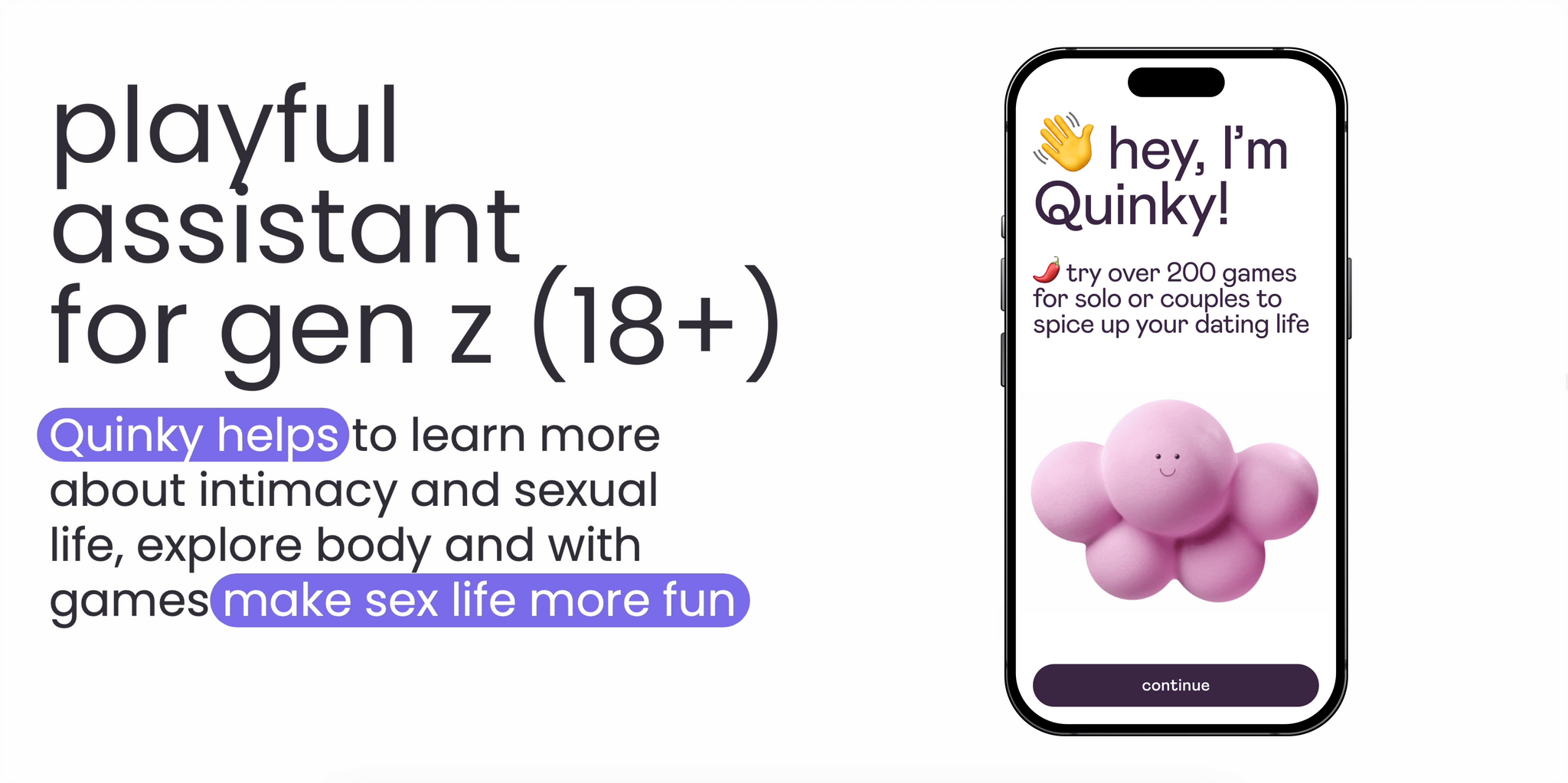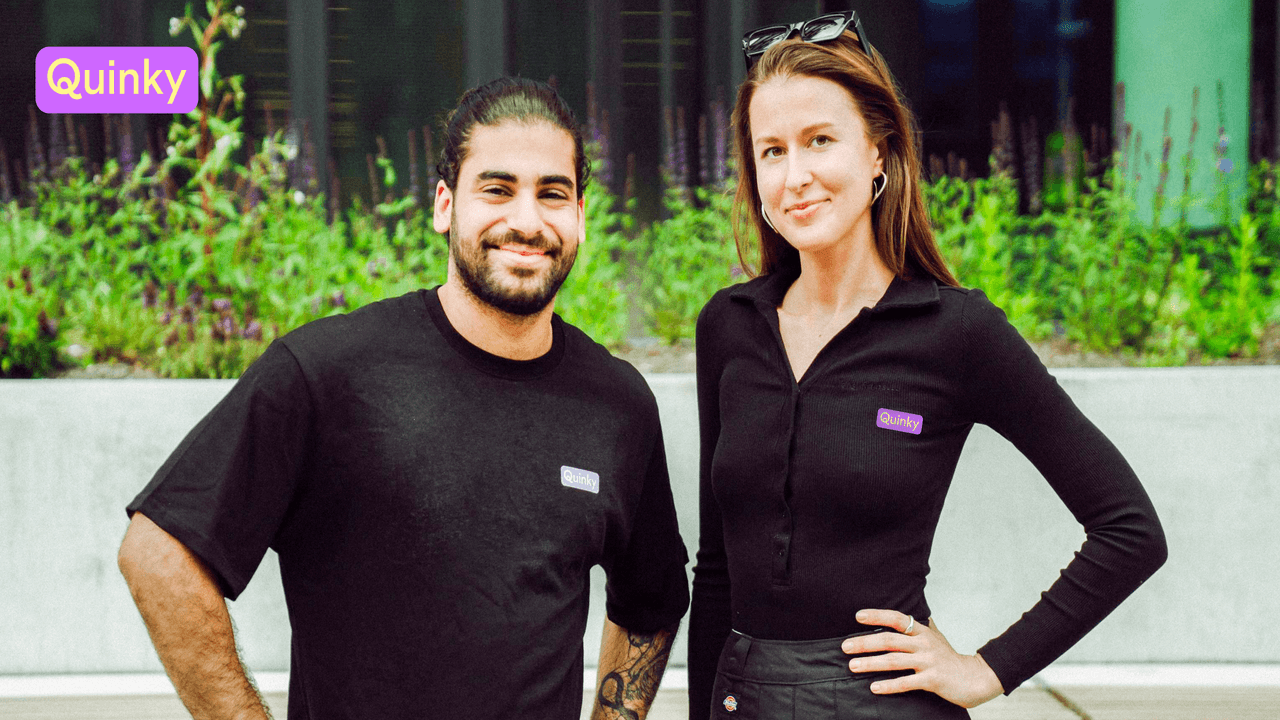Today Dutch sex-ed startup Quinky announces an early-stage funding round of €100k. The company aims to become "the Duolingo" for sex for Gen-Z folks over 18 years with a gamified sex education app.
Quinky is founded by CEO, Mariia Plotkina, a former computer science teacher who started a community called GeekTeachers, and CTO, Neahme Jbaily, a 24-year-old serial entrepreneur originally from Lebanon, where the topic of sex is taboo and highly stigmatised.
I spoke to Jbaily to find out more.
Why a sex-ed app?
What was sex education like where you went to school? I went to a Catholic school, where a heterosexual couple taught it, and involved a lot of discussion around AIDS, and the guy played the guitar at some point. Bleurgh.
According to Jbaily, even in Europe, sex education taught at school can be patchy and focused on condoms and how to avoid STDs and teenage pregnancy. He shared:
"Sex education at schools traditionally focuses on heterosexual activity, and the whole pleasure aspect is skipped.
And what's really awful is that when you consider pleasure, there's a huge orgasm gap that no one talks about. Just one out of 10 women orgasm, yet 95% of men have orgasms.
This is where we want to come in. We want to really put this pleasure aspect to sex education — everyone should enjoy sex, not just experience it as a mechanical thing that you do."
Quinky creates education through gamification

The company focuses on science-based content on healthy communication between partners, effective contraception and tips for pleasure for couples and solo people.
It has developed a virtual assistant who can answer any questions about sex, however explicit with Jbaily explained:
"Growing up in the Middle East, I didn't even know how to put on a condom. I want answers to all kinds of user questions."
Users can use the app anonymously or establish a profile which personalises content. They receive a series of scenarios or ideas to explore by themselves or with a partner or partners and can track their progress and share their results as desired.
The app then tracks user preferences and tailors games and information accordingly.
Just a reminder, when we refer to Gen-Z in this instance, we're referencing people born between 2005 and 2012 (now aged 18 to 26) many of whom created their first social media apps in their teens.
Over half of the team at Quinky are Gen-Zers, and Jbaily shared that according to research, over 40% of Gen-Z get their sex education from Tik Tok or porn.
Quinky wants people to be able to access factual information, so a professional verifies each task or game at Quinky, unlike the content found on social media or in porn.
Furthermore, Jbaily explained that it goes beyond what tools such as OpenAI allows:
"For example, we want to visualise BDSM from basic levels to more advanced mastery."
To ensure the content is up to the highest standards, Quinky are working with the best sexologists — like Laura Vowels, a former advisor at Blueheart, Quinky's biggest US competitor.
The app also focuses on consent, recently hosting an offline event with Amsterdam not-for-profit Share Network, focused on women who want to reclaim their sexual agency.
I was curious to learn about the experience of seeking funding, as Jbaily had just returned from a trip to meet potential investors in Dubai.
He shared that the need for the app and what it aimed to achieve had to be explained very carefully, but also noted that Europe is not always easier:
"I cannot stress how difficult this has been, especially in the Netherlands, where most of the money has been old bank money, so we pitched to a lot of people in the older generation, and the energy makes you feel like they're not entirely comfortable."
Fortunately, there are also women-focused VCs and those already investing in sextech, which removes the "why" from the conversation.
Quinky's current funding is from Antler, who also funds sex tech companies Blueheart and Bump'n.
The app is in beta tests with plans to roll out the app free to all Gen Zers in Q3. Later there are plans for monetising through subscriptions, an in-app marketplace, and potentially people-matching.



Would you like to write the first comment?
Login to post comments